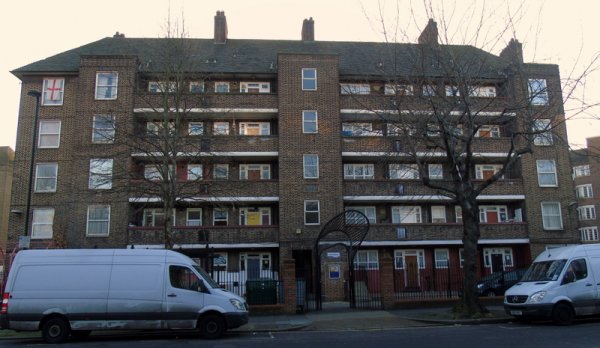Feb 2nd 2021, 13:57
Blog 2nd February 2021
In this blog I consider: the financial effects of coronavirus on local authorities including their housing revenue accounts; whether there is a case for replacing business rates with a Community Landowner Levy; and our webinars.
Last week, the Ministry for Housing, Communities & Local Government published ‘Local authority COVID-19 financial impact monitoring information round 8’ – a document that summarises the financial effects of the pandemic on local authorities in England.
These statistics show that local authorities in England have incurred an additional £6.9billion of expenditure so far in 2020/21 because of covid19 along with losing £5.9million of income. A total negative impact of £12.8billion. Central government has met £4.6billion of this through increased grants leaving local authorities and local taxpayers to find the remaining £8.2billion.
Adult social care has accounted for £3.1billion of the £6.9billion extra spending, while the largest reductions in income are mainly due to reduced sales, fees, and charges (£2.0billion), business rates (£1.7billion) and council tax (£1.4billion). Councils have also spent an extra £315.5million on housing services through the General Fund in 2020/21 due to the pandemic – most of which relates to homelessness and rough sleeping.
I wrote in detail about this in my blog of 6th July. To view this blog, please click here.
While the government has provided some financial support to general funds, it has provided none to housing revenue accounts. Housing revenue accounts lost £166million in income between April and December 2020, mostly in the form of rent arrears. They also had to spend an additional £62million on things such as PPE and additional workforce costs. This has led to concerns about the ability of housing revenue accounts to cope with the shocks of the pandemic combined with bills for fire safety and decarbonisation work.

Flats on the Briant estate owned by Lambeth Borough Council in London. Coronavirus has increased costs and reduced income for council landlords.
Of the income losses to housing revenue accounts during the pandemic, £115million have come from residential rent arrears, with a further £12million from commercial rent arrears. Another £19million has been lost to increased voids, with the remaining £20million not defined in the figures. London boroughs accounted for £61million (37%) of the total lost income. Total lost income for November and December was £11million a month, below the May peak of £32.3million.
Workforce pressures accounted for £20million of the extra spending because of the pandemic, plus £14million for supplies including personal protective equipment and £29million in other unspecified costs. Extra expenditure for December was £3million, down from £4million in November following a gradual decline since the £13million recorded in May.
There are similar patterns in Scotland and Wales. Perhaps the governments of England, Scotland and Wales should consider providing some additional financial support for housing revenue accounts.
I am presenting webinars on local authority housing finance. There are separate versions in England, Scotland, and Wales. For further information or to book your place, please click on the links below:
Business Rates have always been a controversial tax. However, the decline of the retail sector, especially in town centres, that has been accelerated by the coronavirus pandemic, has led to a renewed focus on business rates. It is being questioned whether they are an effective form of taxation, whether they are equitable and whether they place barriers in the way of economic growth.

Barnard Castle. The High Street is in crisis and are business rates part of the problem?
One alternative to business rates that I have been reading about is the ‘Commercial Landowner Levy’ (CLL). I outline some of the advantages that are claimed for it below:
Business rates are harmful to the economy because they tax capital investment in structures and equipment directly rather than taxing profits or the fixed stock of land. In contrast, a CLL would tax only the land value of commercial sites, not productive investment. Removing buildings, utilities and other physical capital from taxation would boost business investment, in turn increasing productivity and wages.
Britain’s economy is characterised by profound inequalities between its regions, and business rates are a drag on commercial activity. In England, the CLL would reduce business taxes in 92% of local authorities – particularly outside the South East – helping to rebalance the economy.
Britain’s high streets are in crisis. The CLL could give a much-needed boost to struggling high streets across the country, by cutting taxes for retailers in most areas. Businesses in the most deprived areas would see the biggest fall in their bills, while some shops in expensive areas would see small tax increases.
Business rates particularly disadvantage manufacturing and the country’s infrastructure relative to less capital-intensive sectors. They also discourage investment in renewables and improving energy efficiency. The CLL could boost manufacturing and make it cheaper for businesses to invest in renewables or other new technology. Average bills for manufacturing premises could go down by 22%, and taxes on energy, internet and rail infrastructure would also be likely to reduce.
Where public investment increases land value, it is argued that increased taxation should help to fund the investment. But business rates are revalued infrequently, increase only with inflation, and are only partly based on land values. Rather than increasing tax bills when businesses improve their premises, the CLL would concentrate on capturing increases in land values driven by public and community investment. This land value capture would help make the business case for new publicly funded infrastructure, while businesses investing in their own property would not face higher taxes.
Business rates are paid and administered by the occupier, even if many small businesses rent from a major property company. The CLL would be paid by the owner not the tenant, relieving over half a million small businesses of the need to pay property taxation. 61% of small to medium sized businesses in England with premises – and even greater proportions in retail and manufacturing – would no longer have to pay business rates although rents may be adjusted to reflect this.
Business rates are based on valuations that are usually considerably outdated. With annual revaluations and greater flexibility, the CLL could better reflect local economic conditions and avoid large infrequent changes. This would support businesses in difficult economic times and raise additional tax revenues in good times.
The CLL would be far easier for local authorities to collect, with fewer plots of land than rateable business premises.
Empty properties and derelict land are currently undertaxed, reducing supply. A CLL would end exemptions for empty and derelict premises and use this to lower bills overall. In struggling parts of the country, the impact of this on landowners would be limited, as the CLL would be low in these places. In contrast the impact would be greatest where new supply is most needed.
Business rates are a crucial part of local government financing. Central funding and redistribution between local authorities would need to be adjusted to ensure that a tax cut for local businesses does not leave councils worse off. Tax retention schemes could also continue. However, combining reform of business taxation with the introduction of locally determined taxation could increase the financial autonomy of local authorities.
The experience of countries across the world shows that taxing land rather than property is beneficial. For example, Australia, Denmark, and Estonia all have land taxes, with Estonia repeatedly topping the International Tax Competitiveness Index.
Perhaps the English, Scottish and Welsh governments should seriously consider the abolition of business rates and their replacement with a Commercial Landowner Levy.
We will be holding several webinars over the next few months on subjects relevant to public services, local government, and housing. For further information or to make a booking, please click here.